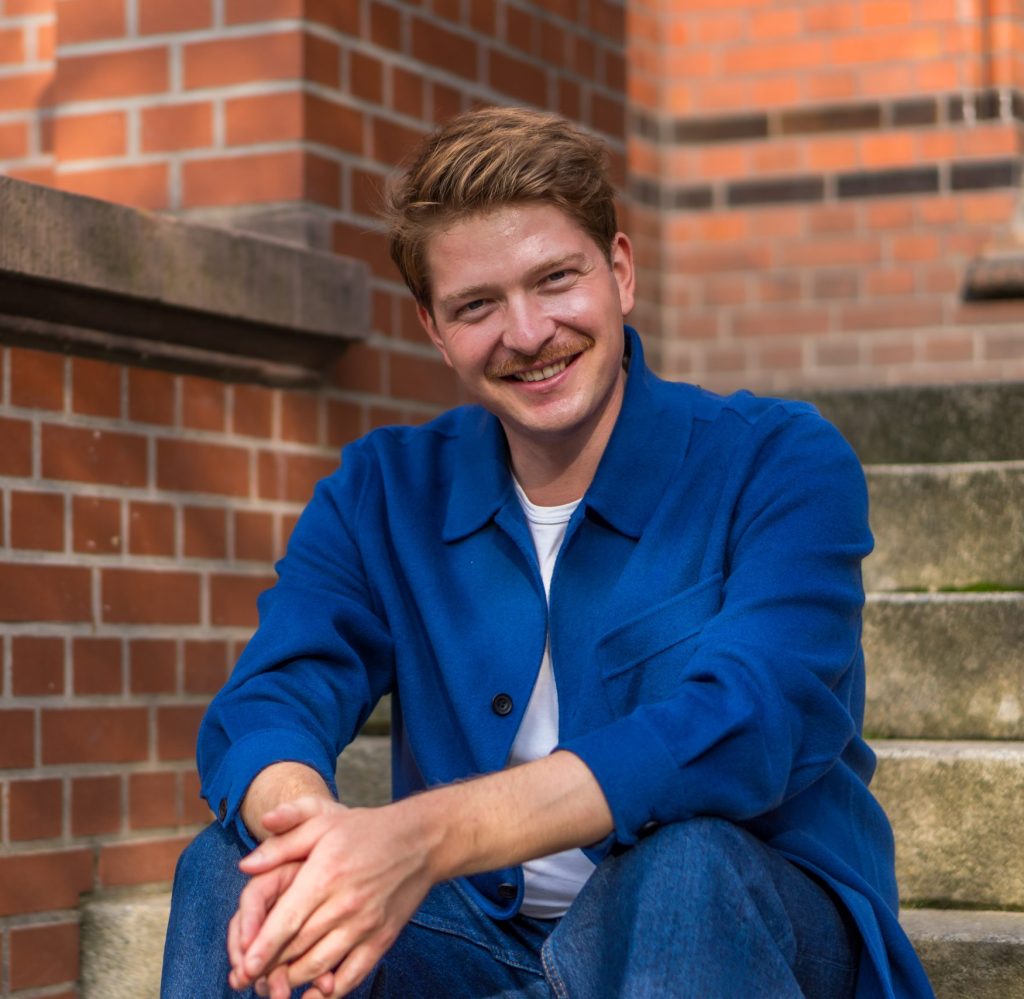Tim Senkbeil is a PhD-researcher in the IRTG “Baltic Peripeties. Narratives of Reformations, Revolutions and Catastrophes”. He is currently working on the narration and construction of time in German literature dealing with 1989 and the aftermath.
Tim Senkbeil

University of Greifswald
IRTG Baltic Peripeties
Anklamer Str. 20
17489 Greifswald
Germany
Room: 0.09
+49 3834 420 3598
tim.senkbeil[at]uni-greifswald.de
Time and the Formation of Time in German Literature Dealing with 1989 and the Aftermath
Narratives of the ‚Wende’ show a particular affinity for narrating and forming time. Based on an aesthetically reflected understanding of ‚Zeitgestaltung‘, I would like to pursue an analytical approach that takes into account both the formal design and the semantic thematisation of time in narrative texts.
MORE ABOUT THE PROJECT- “Glossary: Zeitenwende,” in Baltic Peripeties – The Power of Narration and the Making of Regions, ed. Eckhard Schumacher and Cordelia Heß. Göttingen: V&R unipress, 2025: 308-309, https://doi.org/10.14220/9783737017008.299.
- “Narrating the transition. The emergence of an in-between-time in German literature dealing with 1989 and its aftermath“, doctoral seminar at the 8th conference of the European Narratology Network (ENN), Limits of Narrative, University of Wuppertal, September 29, 2025.
- “How to do things with peripeties? Interdisciplinary approaches to the Baltic Sea Region”, keynote together with Prof. Dr Clemens Räthel, Prof. Dr Eckhard Schumacher, Charlotte Steinert and Dr Alexander Waszynski at the conference of the International Association of Scandinavian Studies Peripetier, katastrofer, happy endings: Vendepunkter i nordisk litteratur og kultur, Ludwig-Maximilians-Universität München, July 30 – August 02, 2025.
- Organization of the international workshop Exploring Narrative Gaps in Literature. Identity, Memory, and the Absent, together with Paula Friedericke Hartmann and Hanna Horn, University of Greifswald, July 10 – 11, 2025.
- “Wende erzählen. Zeitgestaltung in der deutschsprachigen ‚Nachwendeliteratur’”, international summer school Schreibweisen der Gegenwart. Zeitdarstellung und Zeitreflexionen in der Gegenwartsliteratur, Alfried Krupp Institute for Advanced Study Greifswald, June 30 – July 04, 2025.
- “Narrating 1989. Construction of Time in Contemporary German Literature”, international workshop From Crises to ‘Permacrisis’, organised by the IRTG ‘Baltic Peripeties. Narratives of Reformations, Revolutions and Catastrophes’ and the NTNU research group ‘Literature as a social resource’, Department for Language and Literature, NTNU Trondheim, May 07-08, 2025.
- “Time and the Construction of Time in German Literature Dealing with 1989 and the Aftermath,” international workshop Resonant Conflicts. Turning Points in the Baltic Sea Region, organised by the IRTG Baltic Peripeties. Narratives of Reformations, Revolutions and Catastrophes, Department for Language and Literature, NTNU Trondheim, May 22-24, 2024.
- “Zeit und Zeitgestaltung in der deutschsprachigen Wendeliteratur,” presentation of the doctoral project with focus on Angela Krauß’ narration Die Überfliegerin at the Kolloquium für Neuere Deutsche Literatur, organised by Prof. Dr Eckhard Schumacher, University of Greifswald, January 31, 2024.
- “Zeit und Zeitgestaltung in der deutschsprachigen Wendeliteratur,” presentation at the Forschungscolloquium Gegenwartsliteratur, Alfried Krupp Institute for Advanced Study Greifswald, February 23-24, 2023.
University studies and degrees
- Since April 2024
- Doctoral Researcher at the International Research Training Group “Baltic Peripeties. Narratives of Reformations, Revolutions and Catastrophes” at the Modern German Literary Studies, Department of German Philology, University of Greifswald.
- Since 2022
- Doctoral Student at the University of Greifswald.
- 2016 – 2022
- Erstes Staatsexamen (First State Examination) in German, History and Swedish at the universities of Greifswald and Lund.
Professional background
- 2022 – 2024
- Research assistant at the Wolfgang-Koeppen-Archiv, Departement of German Philology, University of Greifswald.
- 2021
- Student assistant at the Chair of Nordic History, University of Greifswald.
- 2018 – 2021
- Tutor at the Department of German Philology, University of Greifswald.
- 2018 – 2019
- Student assistant at the Chair of Early Modern History, University of Greifswald.
Teaching
- 2018 – 2021
- Tutor for Modern German Literature, Department of German Philology, University of Greifswald.